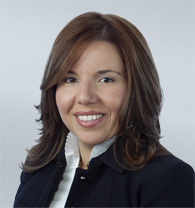
Determining when is appropriate to pay an honorarium to a foreign national on a visitor’s visa often presents a conundrum. Our immigration system is nothing short of complicated with its alphabet soup of visas, but paying a foreign national also presents tax implications.
To begin with, a foreign national who wishes to enter the United States must first obtain an immigrant or nonimmigrant visa. Immigrant visas are for those people who want to come to the United States permanently. Immigrants qualify for one of the many types of immigrant visas based on family relationships or their employment. Nonimmigrant visas are for people who want to come here temporarily for work or pleasure. Last year, the United States issued just over about 5.6 million visas to business travelers or visitors.
The B visa is usually for people who want to enter the United States temporarily for business (B-1), pleasure (B-2), or a combination of both purposes (B-1/B-2). It can only be used for a short-term trip taken to conduct non-remunerated activities for which work authorization is not required. Some examples of permitted activities include attending business meetings or discussions; participating in negotiations on behalf of your employer; attending conferences and training; and negotiating a contract. While in the United States, B visa holders may not engage in activities such as paid performances or professional performances before a paying audience, among other things.
President Clinton, however, signed into law the American Competitiveness and Workforce Improvement Act in 1998. Section 431 of the Act specifically amended the Immigration and Nationality Act to permit educational and nonprofit research institutions to pay honoraria (and incidental expenses) to international visitors engaged in academic activity:
Any alien admitted under section 101(a)(15)(B) may accept an honorarium payment and associated incidental expenses for usual academic activity or activities (lasting not longer than 9 days at any single institution), as defined by the Attorney General in consultation with the Secretary of Education, if such payment is offered by an institution or organization described in subsection (p)(1) and is made for services conducted for the benefit of that institution or entity and if the alien has not accepted such payment or expenses from more than 5 institutions or organizations in the previous 6-month period.
See 8 U.S.C. § 1182(q). Subsection (p)(1) defines “institutions” and “organizations” to include an institution of higher education or a related or affiliated nonprofit entity or a nonprofit research organization.
Accordingly, if a nonprofit entity affiliated with an institution of higher education as described above, invited a foreign national physician to lecture or present on a medical topic, is the nonprofit permitted to pay the foreign doctor an honorarium? Most likely, so long as the following three requirements are met: (i) service is limited to regular academic activity (i.e., lectures, conferences, teaching, presentations); (ii) service period does not exceed nine days; and (iii) the individual does not receive payments or reimbursements from more than five U.S. institutions in a six-month period.
Moreover, if the honorarium is paid, the nonprofit should verify the foreign national satisfies the criteria above and obtain the following documentation:
- A copy of the passport ID page
- A copy of the passport’s expiration date page
- A copy of the US visa page
- A copy of his individual taxpayer identification number
- Date of birth
- A copy of the I-94 Arrival/Departure Record
- Invitation Letter
- Original travel receipts
Of course, every situation is different and payment of an honorarium is not always appropriate. Navigating our immigration system is not an easy task. Our firm is available to assist with your immigration needs. For more information, please contact Maria del Carmen Ramos at 813.227.2252 or mramos@slk-law.com.
